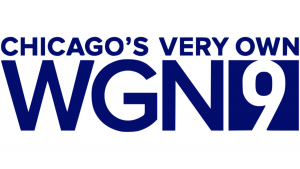News
CCLBA
2020-09-18T12:53:42+00:00
 The firm, Greenlining Realty USA, broke ground in late June on Woodlawn Pointe, a mix of new and rehabbed residential properties in the West Woodlawn area including seven new-construction and two renovated homes in a mix of single- and multi-family buildings.
The firm, Greenlining Realty USA, broke ground in late June on Woodlawn Pointe, a mix of new and rehabbed residential properties in the West Woodlawn area including seven new-construction and two renovated homes in a mix of single- and multi-family buildings. L&MC Investments is currently building 12 brand new affordable single-family homes in Humboldt Park through a partnership with the City of Chicago. And during the past five years, the company has also partnered with the Cook County Land Bank Authority to rehab vacant, abandoned properties. The company has rehabbed about five properties that it acquired from the Land Bank and is currently rehabbing a property in the Hermosa neighborhood.
L&MC Investments is currently building 12 brand new affordable single-family homes in Humboldt Park through a partnership with the City of Chicago. And during the past five years, the company has also partnered with the Cook County Land Bank Authority to rehab vacant, abandoned properties. The company has rehabbed about five properties that it acquired from the Land Bank and is currently rehabbing a property in the Hermosa neighborhood.  A general contractor for more than 20 years, Lindsey recently sold two single-family homes in Englewood since the pandemic hit Chicago, and he is now rehabbing a six-unit Englewood building that will be discounted housing for veterans in honor of his father, a veteran who died last year. He credits his success to being smarter with money, plus the Cook County Land Bank Authority’s vast pool of low-priced abandoned properties, tailor-made for small local developers.
A general contractor for more than 20 years, Lindsey recently sold two single-family homes in Englewood since the pandemic hit Chicago, and he is now rehabbing a six-unit Englewood building that will be discounted housing for veterans in honor of his father, a veteran who died last year. He credits his success to being smarter with money, plus the Cook County Land Bank Authority’s vast pool of low-priced abandoned properties, tailor-made for small local developers. Then, in 2017, she received a call about a raffle that was underway; the winner would get the keys and deed to a newly renovated home. Naturally skeptical about “free” things, she assumed there was some sort of catch.
Then, in 2017, she received a call about a raffle that was underway; the winner would get the keys and deed to a newly renovated home. Naturally skeptical about “free” things, she assumed there was some sort of catch. “It means everything to us to get to make a difference in these neighborhoods across the South and West Side,” Anthony Downing said.
“It means everything to us to get to make a difference in these neighborhoods across the South and West Side,” Anthony Downing said.